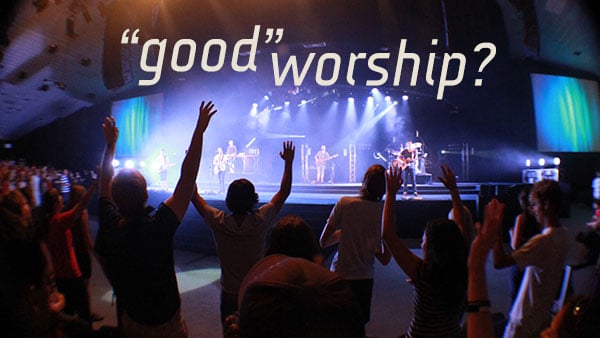
“The worship was so good today!” This is a phrase I hear a lot after church. I’m not the worship leader, so it’s not directed at me, just overheard in conversations as we head to the parking lot.
You may hear it after your services, too. If you’re involved in the music, it’s meant as a compliment and you should take it as such. If we were to press further, I believe the underlying thoughts might be something along the lines of… “I liked all the songs we sang." “The instruments sounded good.” “It wasn’t too loud.” “I got goose bumps when we ended with that a cappella hymn.”
These are all good things. You should always strive to plan music that will work for your congregation. I’m sure you prepare songs they'll enjoy with lyrics that give them opportunities to praise God. You should take their preferences and expectations into account. Just as you decide on a key to accommodate the vocal range of your people, you should choose songs that they will enjoy singing to God.
But if we go back to the phrase, “The worship was so good today,” we find a troubling truth. Most of us define “good worship” based on what we experienced. Worship is good when I like all the songs. Worship is good when I enjoy the band. Worship is good when it makes me feel something.
If worship is our overflowing response to all that God is, it should not depend on song selection or a good key change at the right moment. In fact, worship can be “good” when I don’t know the song, when the musicians are lousy, and the whole thing is too loud. God remains worthy of my praise whether I like the song or not. If I say, “I just couldn’t worship today” because I didn’t care for the pianist this week, I’ve decided that I will only praise God when the conditions please me.
Let me be clear: We should always seek to remove obstacles that would inhibit people from worshipping. Unfamiliar songs played poorly can derail the opportunity for the congregation. I’m not suggesting we intentionally stay away from favorite songs.
But here’s the conundrum: how do you plan music that will engage your congregation but guide your people away from the mindset that “worship is good when I like all the songs?”
That's why we must develop a theology of worship from God's perspective rather than from our own. Scripture alone teaches us what kind of worship--and worshiper--is pleasing to the Lord.










